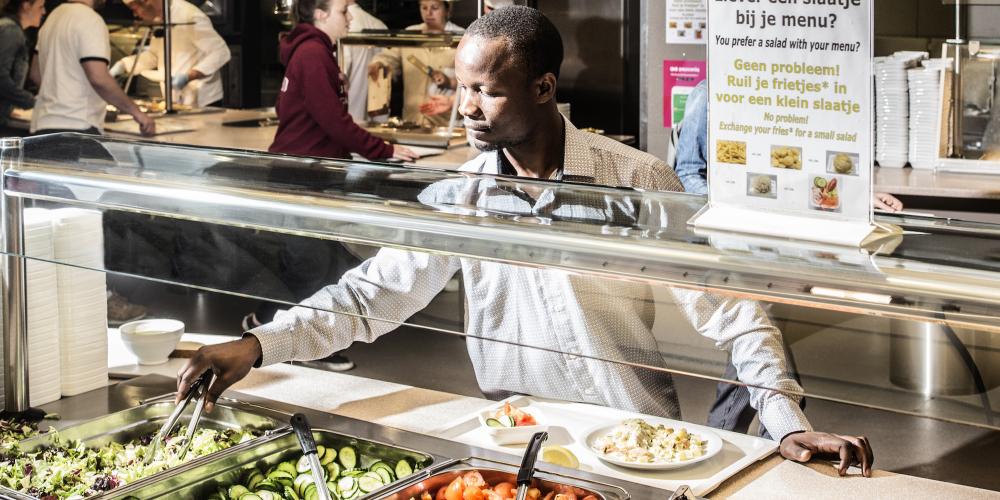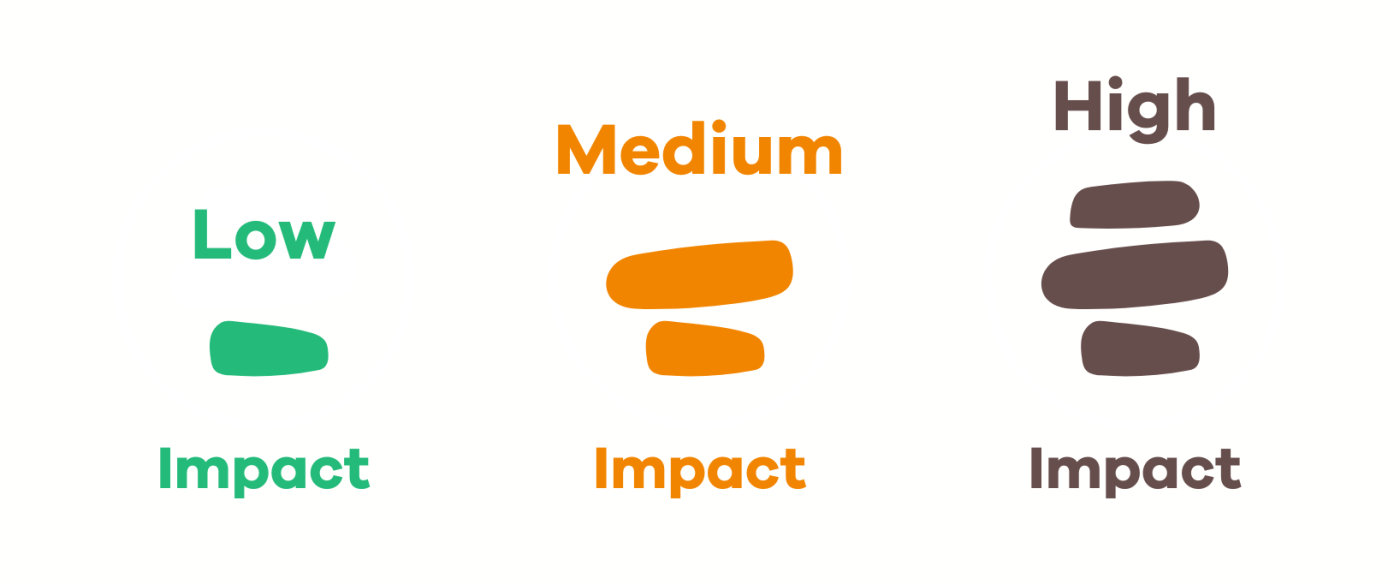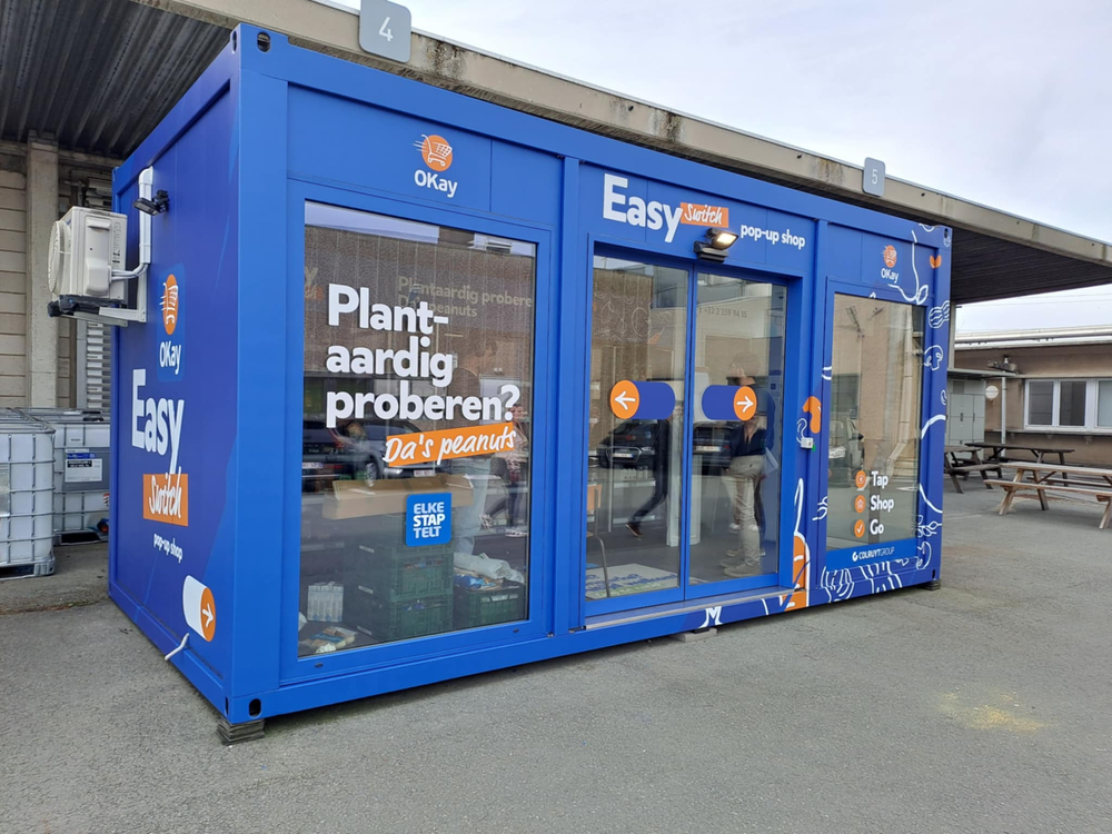
As a partner of the Flemish Government’s Green Deal: Protein Shift on Our Plate, the VUB wants to do its part in contributing to a sustainable planet. Over the next five years, we will actively work towards this by taking on various commitments. Sustainability policy officer Kato Thibaut, quality manager for the VUB restaurant, Leen Cleymans, and head of campus facilities, Jehanne Geudens, explain what that means.
Read more about all the initiatives and activities that the VUB organises around sustainability.
What is the Green Deal: Protein Shift on Our Plate?
“The Flemish government has several Green Deals in which different partners collaborate on specific sustainability themes. The protein shift is one of them. The aim is to move towards a ratio of 60% plant-based protein and 40% animal-based protein, whereas now it is often the other way around.”
And why is this shift necessary?
“Our current food system is under pressure and has a huge impact on our climate, our environment, and our biodiversity. Animal-based proteins require more land and water and generate more greenhouse gas emissions than plant-based proteins. In many ways, plant-based proteins are simply healthier too. A sustainable and healthy food offering on campus has been high on our agenda for some time because it is linked to general student wellbeing. That’s why we, as a university, are eager to get on board.”
How will the VUB put this into practice?
“We are registered as a ‘protein accelerator’, which means that we will not only look at our own organisation, but also at our students and staff. We have made several commitments to ensure that plant-based choices become easier and more appealing. On the one hand, we will focus on clear communication, such as the eco-labels displayed on the screens in the restaurant. On the other hand, our internal catering will become veggie and vegan by default. Meat and fish will remain options, but no longer the standard.”
And besides the three of you, are students and staff also helping to drive this forward?
“Absolutely. The students from the Green Team are also strongly committed, and we work closely with them. They actively propose ideas, for example to highlight the plant-based sandwiches more prominently.”

Ecolabel
Will restaurant visitors notice a difference in the menus?
“In the near future, it won’t be very noticeable yet. At the moment, we have seven different menus, three of which are already vegetarian or vegan by default. We do plan to switch the order of the menus so that visitors become more aware that there are alternatives to meat. In addition, we will also experiment with the naming of the dishes to entice visitors to choose a plant-based option more easily. By making the eco-labels highly visible, they will also stand out more.”
What exactly do these eco-labels mean?
“The eco-label was designed by doctoral student Lise Vermeersch and indicates the environmental impact of a meal. It takes several factors into account, such as CO₂ emissions and water consumption. That score is then compared with the average Belgian meal. If the meal’s impact is better than average, it receives a green label. If it is the same, it gets an orange label, and if it scores worse, a red label. Based on these colours, restaurant visitors can easily see the impact of a meal. We’ve put a lot of effort into making this highly visible so that people can make an informed choice.”
Are other educational institutions involved in the protein shift?
“Yes, several other universities and colleges are also taking part. They meet four times a year in a working group set up by ProVeg. It’s nice to be able to learn from each other about sustainability, especially because you notice that many of the challenges are similar everywhere.”
Do you notice any impact from the various sustainability initiatives so far?
“Not everything can be measured, but we do see that certain actions are definitely successful. For example, we offer a student deal in the restaurant where a meal with a lower environmental impact is made extra affordable. As a result, many students choose a vegetarian option more often.”
What is the biggest barrier preventing people from choosing a plant-based alternative?
“We conducted research among students, and it showed that the threshold to try something new is sometimes quite high. Yet they would probably be pleasantly surprised if they tried a vegetarian or vegan version of something.”
To lower that threshold, a shop selling plant-based products will soon open on the Etterbeek campus.
“That’s right. Colruyt is also one of the signatories, and from mid-November to mid-December there will be a mobile Okay shop that is open 24/7. You will only be able to buy plant-based products there, to show that plant-based doesn’t have to be less appealing and that making the switch is less difficult than people think. During the day, a staff member will be present to provide information, but from the evening onwards the shop operates fully autonomously. There will also be cooking workshops, a St V breakfast, free tasters, and numerous other activities. We’ll announce these via the campus screens and the student portal.”

Okay container on campus